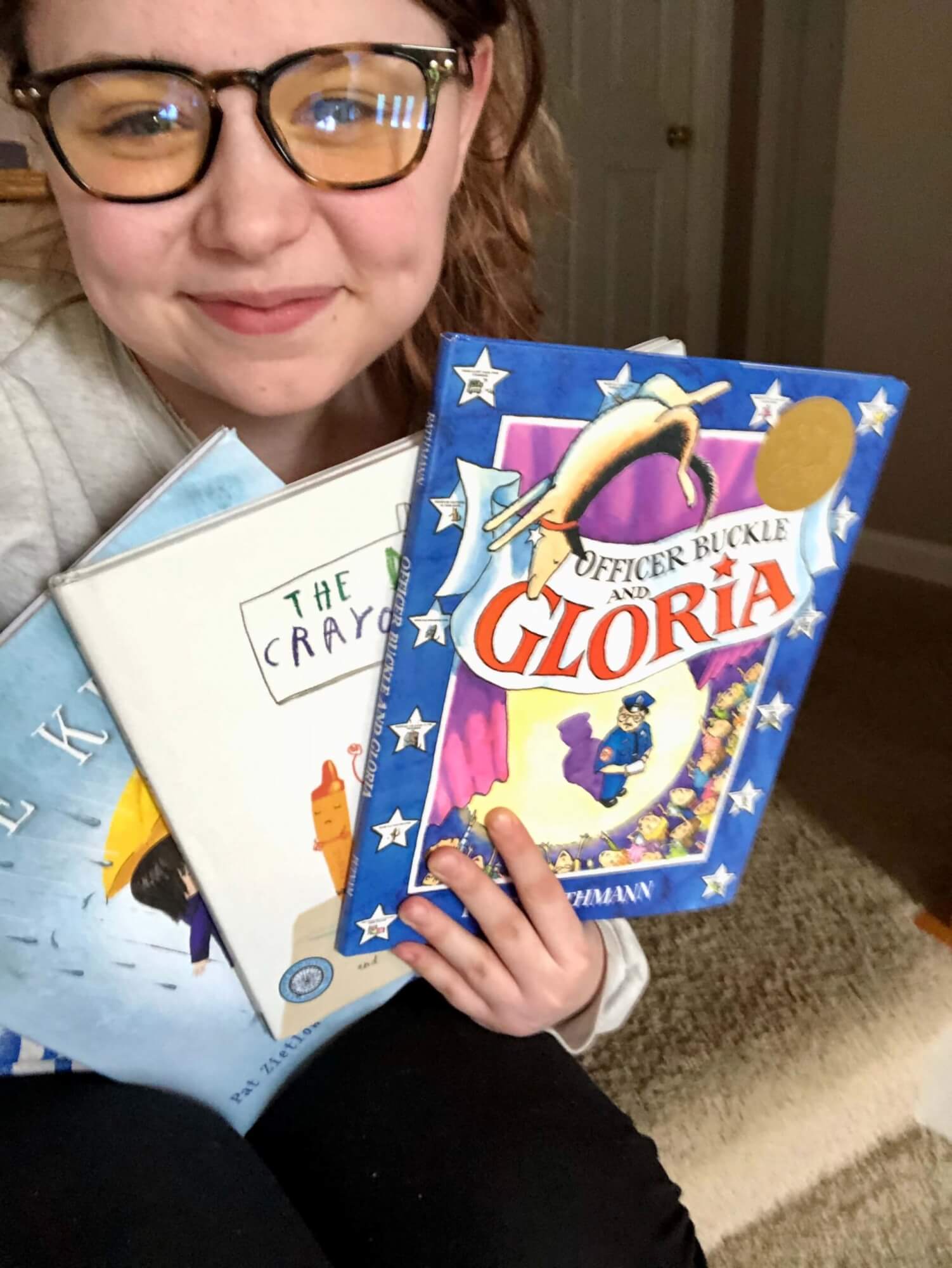Education Students Are Making a Difference
Shenandoah Education & Leadership Students Reach Out to Children & Families Learning at Home

Students in Shenandoah University School of Education and Leadership (SOEL) undergraduate and graduate programs are using their expertise and Shenandoah training to improve the distance learning experience for children and families.
Teachers in Shenandoah Graduate Program Compile Reading Resources for Families
Shenandoah Valley Writing Project Mary K. Tedrow ’99, M.Ed., NBCT, who teaches for SOEL, said the students in her Collaboration in Teaching, Learning & Literacy (EDU 580) course in a Master of Science in Literacy Education cohort created a website designed to help parents keep elementary and middle school students engaged in literacy at home in low-key, fun ways.
The M.S. in Literacy Education is primarily for teachers. In this particular course, those teachers, in their role as students, develop a question related to student achievement and literacy, work together to develop lessons, implement the lessons, and then evaluate their results, Tedrow said. However, the inquiry changed halfway through the semester as a result of the response to the coronavirus pandemic.
When schools announced the shift to distance learning, the students in her class “suspended work that couldn’t be moved online (though several of the projects continued) and shifted to a new inquiry question, which they developed. It was ‘How can you support literacy development in the home?’”
Over the course of approximately a month, the students began gathering resources on how to best connect with parents on the topic and then created a website and a flyer (for families without online access) in which they shared information.
The aim is to incorporate literacy activities into everyday family life to keep students learning in a low-pressure, engaging manner. Online resources were gathered into one location for parents and indicate which ones are free or require a fee.”
Mary K. Tedrow ’99
Helping Parents Effectively Read to Their Children
Beth Blase, a student in the Master of Science in Literacy Education program and preschool teacher based at John Kerr Elementary School in Winchester, Virginia, has created a video to help parents read to children in a way that allows children to more fully experience all the parts of a book.
In the video, in which she reads “Kitten’s First Full Moon,” by Kevin Henkes, Blase shows parents how to guide their children through the book by asking open-ended questions, which require more than a yes or no answer. She recommends using prompts like, “Tell me why you think that,” and “What else did you notice?” She begins with the book’s cover, which shows a kitten, and she asks a simple question like, “How do you know that’s a kitten?” When the kitten mistakes the full moon for a bowl of milk, Blase asks, “What do kittens like to do with a bowl of milk?” The goal is for children to connect the text and the images to their thinking – all with the help of some well-placed questions.
Online Learning Tips from a Pro
While some graduate students are serving students via their classwork, another Master of Science in Literacy Education student, Dana Gent Dembeck, who works for Frederick County Public Schools as an Elementary Instructional Technology Resource Teacher, is drawing upon her established career expertise to offer valuable tips for students and parents immersed in distance learning, which are as follows:
General Internet Provider Tips:
Many cell phone and internet providers are offering upgraded plans for students and teachers amidst the COVID-19 pandemic. Comcast is offering its Internet Essentials Program for eligible families. AT&T is offering deals and relief – take a look at the Education: Going the Distance blog for programs that may benefit your needs at this time. Boost Mobile members are eligible for a one-time monthly service credit due to the COVID-19 crisis, complimentary international calling and many other offers with the company’s Our COVID-19 Plan. Check with your carrier, you may be able to increase your speed and data usage at no cost.
The United Way of the Northern Shenandoah Valley COVID-19 Resources and Community Information Page also has a wealth of local information by category.
ZOOM Tips
Tips & Tricks: Teachers Educating on Zoom
Student Tips from Zoom
Zoom no longer working on your device? Try updating your browser.
General Virtual Learning Tips for Learners:
If you are new to virtual learning, please use these tips to be an active and respectful listener:
- Demonstrate you are paying attention by keeping your eyes on the screen
- Respond by using body language such as nodding and smiling to what you are hearing
- Jot down notes as you are listening, this will help you focus on the content at hand
- Resist the urge to eat during a virtual class
- Check that your mic is muted, double-check that your mic is muted
- Resist the urge to browse or use your phone
- Use the chat feature to ask questions or comment
I also shared this article on peer advice for virtual teaching from the Inside Higher Ed website with my teachers. It is from 2017, but still very applicable to today.
Maintaining Connections Through Literature & Technology
Senior Jordan Sondrol, who is specializing in elementary education, is completing her student-teaching virtually, assisting in both kindergarten and fifth grade classes. For her kindergarteners, she’s reading two or three books a week online, “to both stay connected and keep them engaged in online learning.”
In her recent reading of “David Goes to School,” by David Shannon, Sondrol used the same process as Blase, making sure to ask her young readers/listeners plenty of questions along the way to enrich their understanding of the story’s words and images.
Sondrol, who was also a three-year captain on Shenandoah’s women’s basketball team, will teach second grade at Boones Mill Elementary School in Franklin County, Virginia, this fall.

Kaytie Greenawalt ’21, a Shenandoah student studying elementary and special education, said she loves how Shenandoah’s education program provides its students with abundant hours in K-12 classrooms, “with real students and teachers doing observations, planning and teaching lessons, doing research, and building relationships with students.” When her two-semester-long placement in a kindergarten classroom came to an abrupt end during Shenandoah’s spring break when the school system she served shuttered its buildings, she didn’t even get to say goodbye to the children who had become some of the most important people in her life.
“To compensate, I started filming and uploading read-aloud videos for them to watch at home. They responded incredibly to the videos, some even writing me sweet notes or doing some activities to go along with the books I read! My pro tip for all the pre-service teachers persevering right now: never, ever forget that you are missed, you are appreciated, and you are important. We are doing and learning important things right now, and I don’t think the world is ready to see all that this generation of educators will be able to do!”
Kaytie Greenawalt ’21




